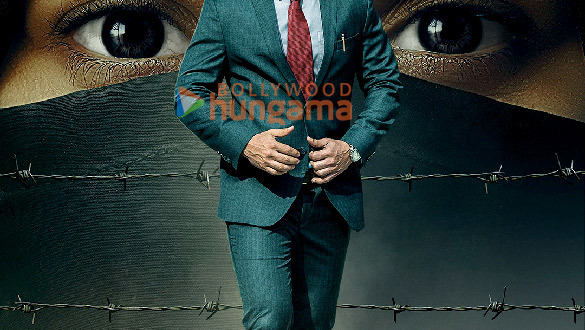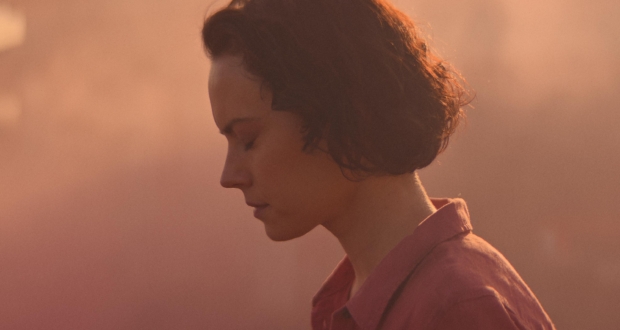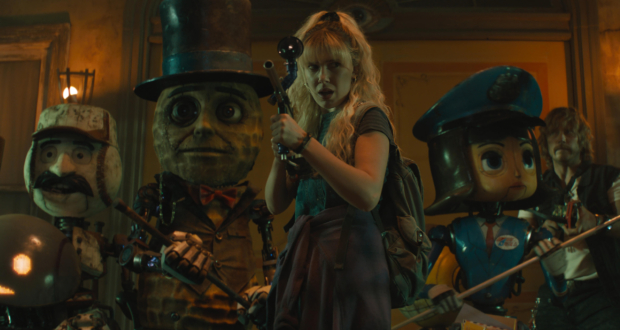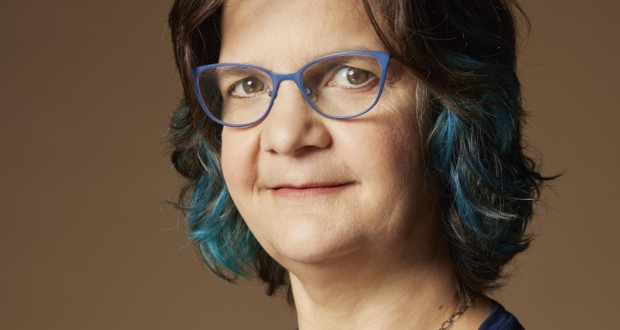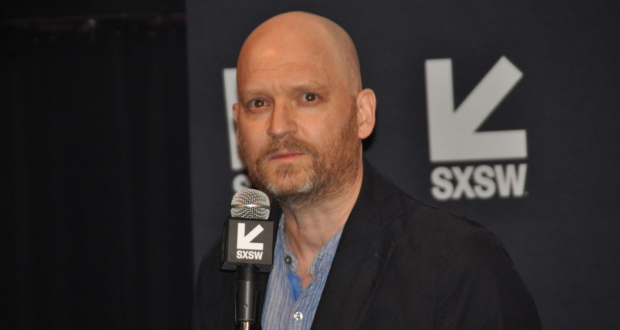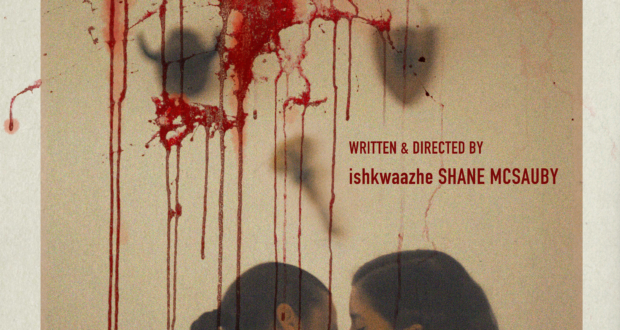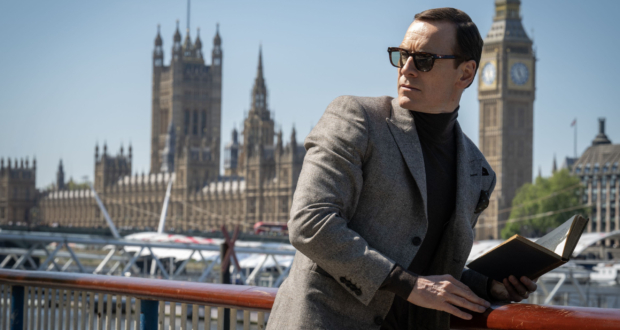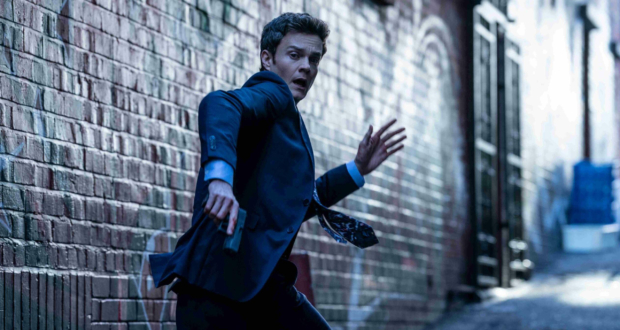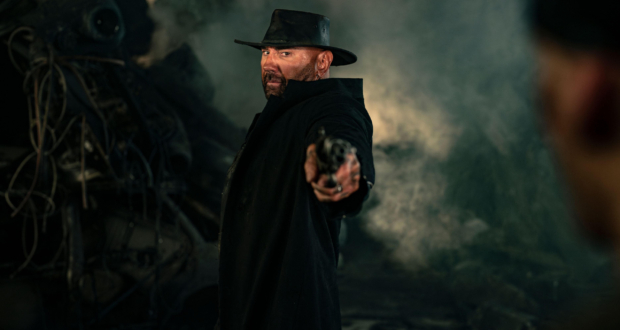Genre: Comedy/Drama, Foreign film (Finland)
92 minutes
Black-and-white with English subtitles
Director: Juho Kuosmanen
Actors: Jarkko Lahti (Olli); Oona Aarola (Raiji); John Bosco, Jr. (Davey Moore); Eero Milonoff (Olli’s manager)
Reviewer: Connie Wilson: WeeklyWilson.com
THE GOOD
Pay special attention to the end of The Happiest Day in the Life of Olli Maki. That’s when you’ll see an old couple walking hand-in-hand. That old couple are the real-life Olli and Raiji Maki. Olli is 79 years old now. His fights took place in the late fifties (Lucerne, ’59, Lightweight; Prague, ’57, Lightweight) or sixties. He became a Finnish national hero for bringing a title fight to Helsinki.
This film, which won a top prize at the Cannes Film Festival, focuses on the World Title Featherweight Match with American boxer Davey Moore that Olli fought in Helsinki on August 17, 1962.
This debut film from Finnish filmmaker Juho Kuosmanen tells the serio-comic story of the real-life Finnish boxer dubbed “the baker of Kokkola.” Even the fighter’s nickname makes you smile. Usually, if a lesser-known fighter (like Chuck Wepner, the real-life model for Stallone’s “Rocky”) picks a nickname, he tries for a dangerous one, like Wepner’s “the Bluffs Butcher.”
Olli, however, is so low-key and affable that his big concern when he loses the title fight to the much more experienced Moore in only 2 rounds is where are the flowers that he has brought to present to the winner? Olli is so low-key that he could be called the Anti-Trump. He tells his trainer (Eero Milonof), “I just want peace before the match” and Eero responds, “Welcome to professional sports.” Other comic turns in the film have the short Olli standing on a box next to a tall professional model and, along with his manager (Eero Milanof), nearly forgetting to retrieve the manager’s child from a roadside bathroom.
Davey Moore, at this point in his career, had fought 64 fights and won half of them by knockout. Olli has only had 10 fights, 300 amateur bouts, and won the European lightweight title in 1959, placing second in 1957. You get the feeling that Olli knows, going in, that he is doomed. [*Olli did fight again after this climactic career pinnacle, in February of 1964, winning the European Boxing Union Light Welterweight title against Conny Rudhof).
Another charming aspect of the film—once you get used to the fact that it is shot in black-and-white—is its inventive newsreel-like feeling. The last film I saw that was intentionally shot in black-and-white was “Manhattan” in 1979 (Woody Allen) but “The Artist” in 2011, which was also in black-and-white, won 5 Oscars, so the technique is not totally dead. It fits here. The effect is an anachronism. References to Rocky Marciano and Frank Sinatra, plus the black-and-white footage, make you feel that this is a documentary or newsreel footage. Nostalgia reigns.
THE BAD
It takes almost two-thirds of the film before Olli even kisses the girl of his dreams, a slow pace for American audiences. There are extensive scenes of nude male horseplay in the showers with a dozen boxers letting it all hang out (The Full Monty). The visiting dignitaries who have arrived for the fight are ushered into the showers where at least ten nude males have been having a water fight. The fighters, all going full frontal, politely stand there in their birthday suits, shaking hands with the fully-clothed visitors. Besides being a loopy juxtaposition (from an American perspective), it seems preposterous that this would occur exactly the way it is portrayed.
The comic touches like the nude shower scene, the car that won’t start (necessitating a precarious bicycle trip to a wedding), the small child of Olli’s manager that the pair almost leave behind in the bathroom, and the fight between Eero Milonoff and his angry crockery-throwing wife detract some from the all-too-brief (but serious) fight, which is over almost as quickly as it began. I haven’t seen a title fight over that fast since Michael Nunn knocked out Sumbu Kalambay in the 1st round in Las Vegas on March 25, 1989. (My husband (whom I had taken to the fight for his birthday) went out to place his bet and the fight was over before he returned.)
THE VERDICT
If you’re a boxing fan and you like a humble champion and you don’t mind reading English subtitles while the actors speak Finnish, you’ll like The Happiest Day in the Life of Olli Makki.
-
Acting - 10/10
10/10
-
Cinematography - 10/10
10/10
-
Plot/Screenplay - 9/10
9/10
-
Setting/Theme - 8/10
8/10
-
Buyability - 5/10
5/10
-
Recyclability - 5/10
5/10


